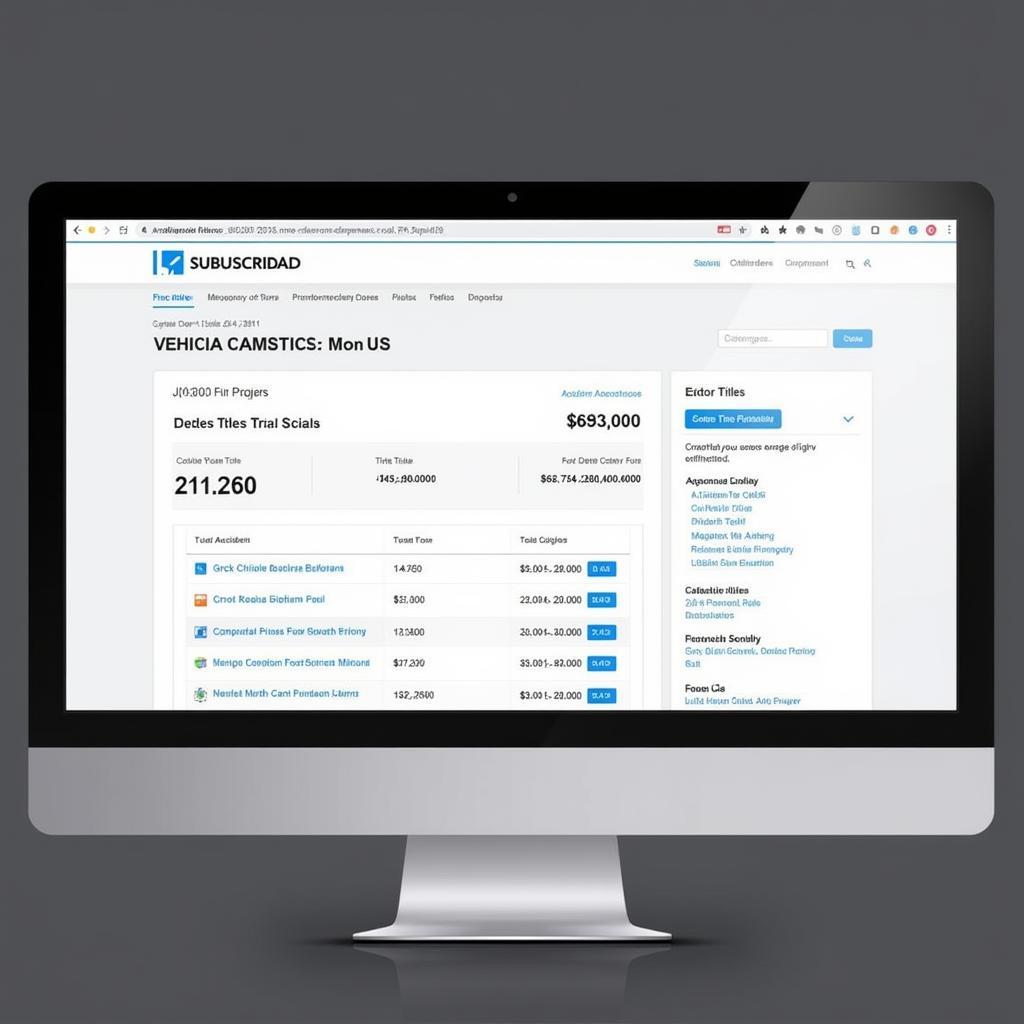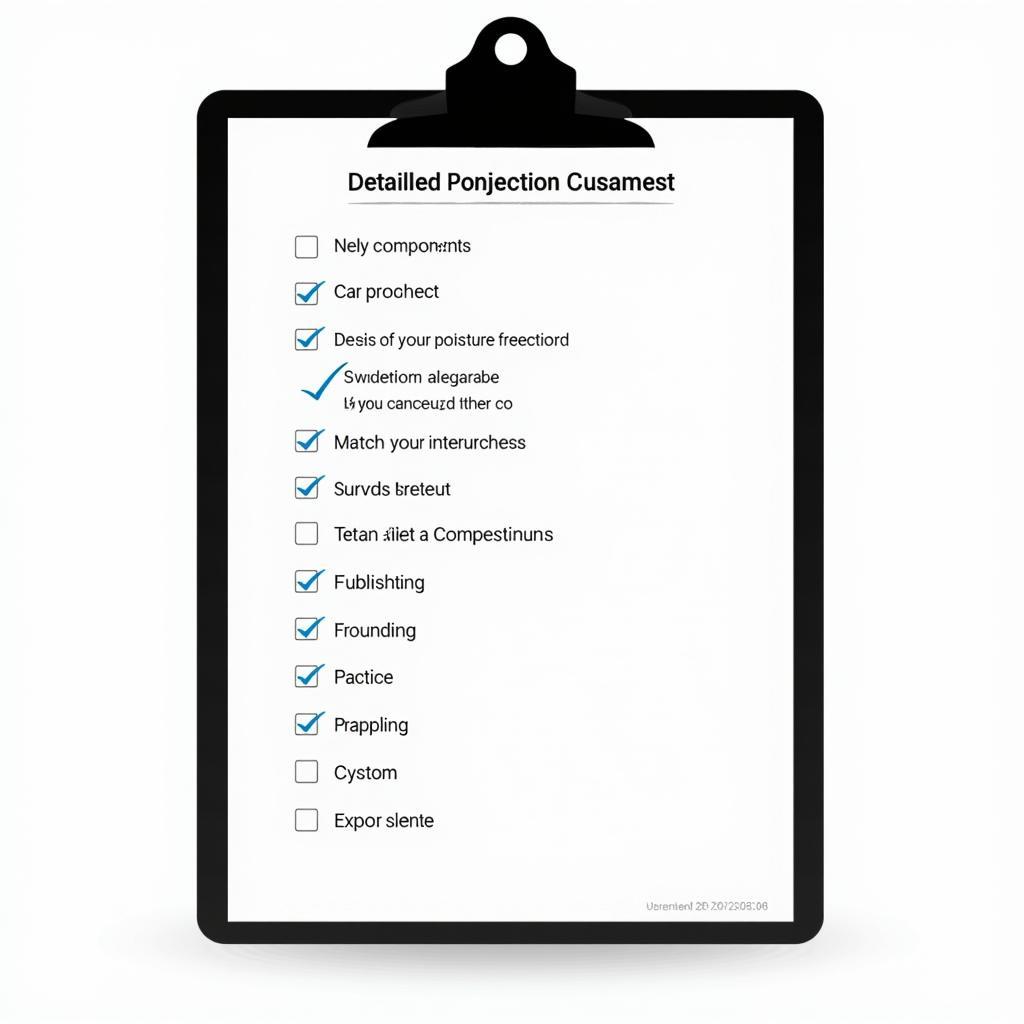Understanding the history and condition of a used car is crucial before making a purchase. Whether you’re buying from a dealership or a private seller, knowing How To See Car Details can save you from costly surprises down the road. This guide provides you with expert tips and tricks to uncover the hidden story behind any used vehicle.
Why Is It Important to See Car Details?
A car’s details tell its story – from past accidents and repairs to maintenance history and overall condition. This information is vital for several reasons:
- Assessing Value: A well-maintained car with a clean history is worth more than one with hidden problems.
- Negotiating Power: Armed with detailed information, you’re in a stronger position to negotiate a fair price.
- Avoiding Lemons: Uncovering hidden issues helps you steer clear of vehicles that could lead to expensive repairs and headaches.
- Peace of Mind: Buying a used car can be stressful. Having a complete understanding of its history provides peace of mind and confidence in your investment.
 Vehicle History Report
Vehicle History Report
Different Ways to See Car Details
There are several avenues to explore when you want to delve into a car’s history and condition:
1. Vehicle History Reports
A vehicle history report (VHR) is your first line of defense. These reports, available from companies like Carfax and AutoCheck, provide a wealth of information:
- Title History: Reveals any salvage brands, liens, or if the car was ever declared a total loss.
- Accident History: Details on reported accidents, including the date, location, and severity of the damage.
- Mileage Records: Verifies the odometer reading and flags any potential rollback.
- Service History: Shows scheduled maintenance, repairs, and even insurance claims.
Pro Tip: Don’t solely rely on one VHR. Cross-referencing information from multiple providers can offer a more comprehensive picture.
2. Pre-Purchase Inspection (PPI)
While VHRs are valuable, they don’t tell the whole story. A pre-purchase inspection by a trusted mechanic is crucial for:
- Mechanical Evaluation: Thorough inspection of the engine, transmission, brakes, suspension, and other vital components.
- Cosmetic Assessment: Identification of any paintwork, dents, scratches, or rust that might indicate prior damage.
- Fluid Analysis: Checking the condition of fluids like engine oil, transmission fluid, and coolant for signs of neglect or underlying issues.
- Diagnostic Scan: Using specialized equipment to read the car’s computer system for any stored fault codes.
Pro Tip: Always choose an independent mechanic specializing in the make and model of the car you’re considering.
3. Decoding the VIN (Vehicle Identification Number)
The VIN is like a car’s fingerprint, containing a wealth of information about its manufacturing and specifications. You can use online VIN decoders or contact the manufacturer to reveal details like:
- Year of Manufacture
- Make and Model
- Engine Size and Type
- Transmission Type
- Plant Where It Was Manufactured
- Safety and Equipment Features
Pro Tip: Carefully examine the VIN plate on the car and compare it to the one on the vehicle registration documents to ensure they match. Any discrepancies could indicate fraud.
4. Careful Visual Inspection
Never underestimate the power of your own observation. Take your time to visually inspect the car inside and out, paying close attention to:
- Bodywork: Look for mismatched paint, overspray, or uneven gaps between panels, which can indicate prior repairs.
- Interior: Check the condition of the seats, carpets, dashboard, and headliner for excessive wear and tear.
- Undercarriage: Examine for rust, corrosion, or fluid leaks that could signal potential problems.
- Tires: Uneven tire wear can indicate alignment issues or suspension problems.
Pro Tip: Bring a flashlight and a small mirror to help you see into tight spaces and under the car.
 Car Detail Inspection Checklist
Car Detail Inspection Checklist
Putting It All Together: Your Car Detailing Toolkit
By combining vehicle history reports, professional inspections, VIN decoding, and your own careful observations, you can build a complete picture of any used car’s past. This knowledge empowers you to make an informed decision and negotiate with confidence, ensuring you drive away with a vehicle you can trust.
Remember, taking the time to see car details is an investment in peace of mind and can potentially save you thousands in unexpected repairs down the line.
FAQs
Q: How much does a vehicle history report cost?
A: Prices vary depending on the provider and the level of detail, but they typically range from $20 to $40.
Q: Is a pre-purchase inspection really necessary if the car has a clean vehicle history report?
A: Yes, a PPI is still highly recommended. VHRs can miss unreported accidents or maintenance issues.
Q: Can I trust the odometer reading?
A: While illegal, odometer rollback does occur. Checking the mileage records on the VHR and looking for signs of wear and tear inconsistent with the mileage can help detect tampering.
Q: What should I do if I find a problem during my inspection?
A: Use the information to negotiate a lower price or walk away from the deal if the seller is unwilling to address the issue.
Q: Can I do my own pre-purchase inspection?
A: While you can perform a basic visual check, it’s best to have a professional mechanic conduct a thorough inspection, especially if you’re not mechanically inclined.
Need Help Seeing the Details?
CarDetailingUK offers expert advice and resources to help you navigate the used car market with confidence. Contact us today for personalized assistance!
WhatsApp: +1(641)206-8880
Email: [email protected]
Our team is available 24/7 to answer your questions and guide you toward your next dream car.

Leave a Reply